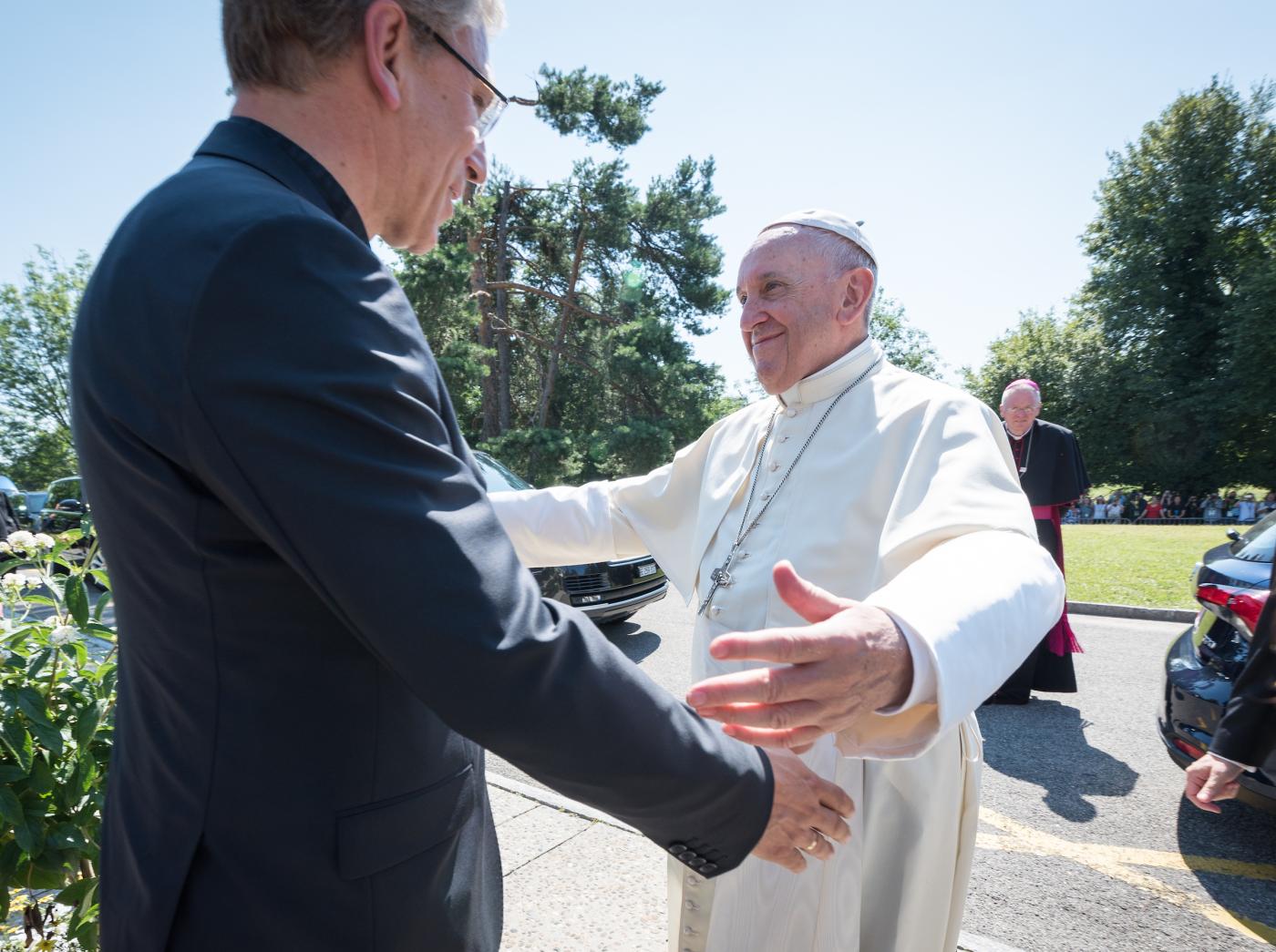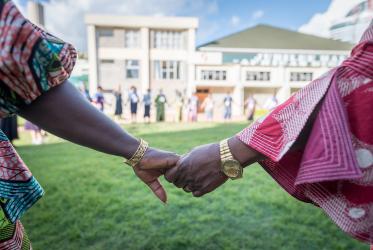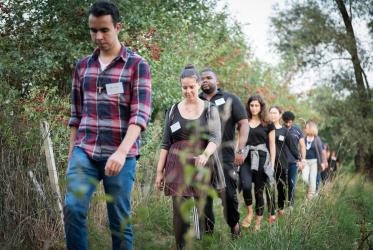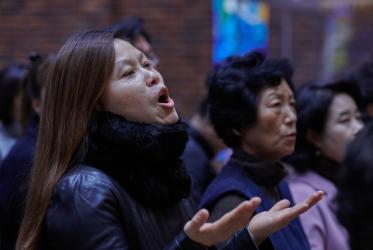By Stephen Brown*
When the World Council of Churches (WCC) general secretary, Olav Fykse Tveit, first visited Pope Benedict XVI at the Vatican in December 2010 he took with him a pair of warm gloves as a gift for the pontiff.
“In winter they protect well from the cold,” said Tveit, a Lutheran theologian well accustomed to the season of snow and ice in his Norwegian homeland. “So, in this time, which, according to some people is an ecumenical winter, they are a symbol of the possibility to go ahead, despite the difficulties.”
Almost eight years later, however, visiting Geneva on 21 June at the invitation of the WCC to celebrate its 70th anniversary, Pope Francis spoke not of winter but said he looked forward to the “flowering of a new ecumenical spring.”
Founded in 1948, the WCC today groups 350 Protestant, Orthodox, Anglican and other churches worldwide. The Roman Catholic Church is not a member, although it cooperates with the WCC in some areas.
The meeting in Geneva was described as an “ecumenical pilgrimage,” with the motto “Walking, praying and working together.”
It was the third papal visit after those of Pope Paul VI in 1969 and John Paul II in 1984.
While his predecessors on their visits each underlined the unique role of the papacy in Roman Catholic Church, Pope Francis told the WCC he had come “as a pilgrim in quest of unity and peace.”
According to Martin Bräuer, an expert on Catholicism at the Institute for Ecumenical Research at Bensheim in Germany, Francis “deals with the issue of ecumenism in a different way than that with which we have been accustomed.”
The pope is “convinced that Christians must act and bear witness together, and must speak with one voice on the great challenges facing humanity such as solidarity, peace, the environment and justice.”
For this reason, Bräuer wrote in an article published in the WCC journal, The Ecumenical Review, “he relies on personal encounters: on talking with one another, not about one another.”
The year after his election in 2013, Francis visited a Pentecostal community; in 2015, he became the first pope to enter a Waldensian church in Italy; and the following year the first to have a meeting with a Patriarch of the Russian Orthodox Church when he met Patriarch Kirill in Havana.
Pope Francis then travelled to Lund in Sweden for a joint Catholic-Lutheran commemoration with the Lutheran World Federation on 31 October 2016 to inaugurate the 500th anniversary of the Protestant Reformation.
And two days after his return from the WCC, Pope Francis had his first meeting with representatives of the Organization of African Instituted Churches.
“Francis also wishes to set things in motion as far as ecumenism is concerned and thereby create a new dynamic intended to change the way that all churches communicate internally and externally,” according to Bräuer.
The pope is developing, suggested Bräuer, “a model of unity in which the identity of the different churches is preserved without obscuring the identity of the whole.”
Back in 2010, in a book of autobiographical interviews and in a phrase prefiguring the motto of his visit to the WCC, the then Cardinal Jorge Mario Bergoglio spoke of seeking “a reconciled diversity that implies walking together, praying and working together.”
In his address as pope to WCC leaders in Geneva, Francis seemed to have taken one step further, referring now to the path of “a reconciled communion aimed at the visible manifestation of the fraternity that even now unites believers.”
In words of welcome to Pope Francis, the WCC’s Tveit described the motto of the meeting as capturing a new momentum in the one ecumenical movement.
“Today we are passing a milestone on our journey,” he said, adding later, “We will not stop here. We will continue, we can do much together for those who need us.”
For the next steps in the season of ecumenical spring, it seems it is not warm gloves, but stout walking shoes that are needed.
* Stephen Brown, the editor of the quarterly journal of the World Council of Churches, The Ecumenical Review, travelled on the papal plane with Pope Francis.







